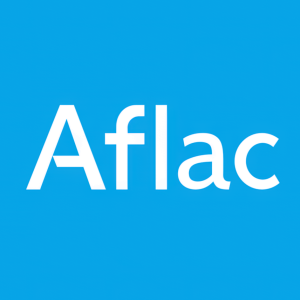Coronavirus Gives Workers Wake-up Call, Leads to Surge in Open Enrollment Research
Aflac conducted a national survey revealing significant changes in employee behavior concerning open enrollment during the COVID-19 pandemic. Of the surveyed employees, 49% indicated they are now investing more time researching benefits, a noteworthy shift from the previous norm of 92% choosing the same benefits annually. Financial impacts from the pandemic are evident, with 67% reporting at least minor financial issues. Additionally, 63% expect expanded benefits, underscoring an anticipated rise in demand for better insurance options in the workforce.
- 49% of employees are investing more time in benefits research due to pandemic awareness.
- 63% of employees expect expanded benefits, indicating a robust demand for supplemental insurance.
- 67% of employees faced financial impacts from COVID-19, with 36% losing jobs or income.
- 33% of employees are unsure if their health benefits will protect them against COVID-19.
COLUMBUS, Ga., Sept. 21, 2020 /PRNewswire/ -- The annual open enrollment season is nearly underway, and U.S. employees will be making benefits decisions during an unprecedented and challenging time. To understand employees' and employers' feelings about this critical event, Aflac, a leading provider of supplemental insurance and products in the U.S., conducted a national online survey of 1,200 benefits decision-makers and 2,000 employees across the U.S. during the COVID-19 pandemic.
The 2020 Aflac WorkForces Report provides insights into how the pandemic is influencing benefits research and selection in addition to consumer opinions on health insurance and financial security.
Pandemic Underscores Open Enrollment Decisions
According to the survey, nearly half (
"Choosing benefits is one of the most important actions people take each year. And for the past 10 years, our survey found that employees are on autopilot when it comes to the choices they make," said Matthew Owenby, chief human resources officer at Aflac. "However, COVID-19 has inspired important conversations taking place about the current health care crisis and growing concerns about financial security."
In fact, one-third (
The most common of these financial impacts include:
- Loss of funds due to canceled trips or events (
42% ). - Loss of a job or income (
36% ). - Unexpected costs related to caring for a family member (
21% ), deductibles (18% ) and out-of-pocket health care costs (18% ).
Challenges continue with health care costs and decisions
COVID-19 aside, employees continue to worry about their financial vulnerability to unexpected out-of-pocket medical costs. Six out of 10 employees believe their share of medical costs will increase next year, and
Unexpected medical costs could weigh heavily on American employees who are not in a financial position to go beyond their current budget. Specifically,
Expectations of Businesses High
For employers, these pandemic-related challenges will come to the forefront during open enrollment, as employees expect more from their benefits packages. A full
"It's certainly an encouraging sign to see more than half of workers are expecting more from their benefits package than just health insurance, and employers would do well to listen to their concerns," said Owenby. "Our survey found that more than one-third (
Visit AflacWorkForcesReport.com to learn more about the 2020 Aflac WorkForces Report.
About the 2020 Aflac WorkForces Report
The 2020-2021 Aflac WorkForces Report is the 10th annual Aflac employee study examining benefits trends and attitudes. The employer survey, conducted by Kantar on behalf of Aflac, took place online between June 12 and June 30, 2020. The survey captured responses from 1,200 employers across the United States in various industries. The employee survey, conducted by Kantar on behalf of Aflac, captured responses from 2,000 employees across various industries and business sizes between July 7 and July 21.
About Kantar
Kantar is the world's leading evidence-based insights and consulting company. We have a complete, unique and rounded understanding of how people think, feel and act; globally and locally in over 90 markets. By combining the deep expertise of our people, our data resources and benchmarks, our innovative analytics and technology, we help our clients understand people and inspire growth.
ABOUT AFLAC INCORPORATED
Aflac Incorporated (NYSE: AFL) is a Fortune 500 company, helping provide protection to more than 50 million people through its subsidiaries in Japan and the U.S., where it is a leading supplemental insurer by paying cash fast when policyholders get sick or injured. For more than six decades, insurance policies of Aflac Incorporated's subsidiaries have given policyholders the opportunity to focus on recovery, not financial stress. Aflac Life Insurance Japan is the leading provider of medical and cancer insurance in Japan, where it insures 1 in 4 households. Fortune magazine recognized Aflac as one of the 100 Best Companies to Work for in America for 20 consecutive years. For 14 consecutive years, Aflac has been recognized by Ethisphere as one of the World's Most Ethical Companies. In 2020, Fortune included Aflac Incorporated on its list of World's Most Admired Companies for the 19th time, and Bloomberg added Aflac Incorporated to its Gender-Equality Index, which tracks the financial performance of public companies committed to supporting gender equality through policy development, representation and transparency. To learn how to get help with expenses health insurance doesn't cover, get to know us at aflac.com.
Media contact – Darcy Brito, 706.505.9762 or dbrito@aflac.com
Analyst and investor contact – David A. Young, 706.596.3264 or dyoung@aflac.com
![]() View original content to download multimedia:http://www.prnewswire.com/news-releases/coronavirus-gives-workers-wake-up-call-leads-to-surge-in-open-enrollment-research-301134365.html
View original content to download multimedia:http://www.prnewswire.com/news-releases/coronavirus-gives-workers-wake-up-call-leads-to-surge-in-open-enrollment-research-301134365.html
SOURCE Aflac
FAQ
What did the recent Aflac survey reveal about employee behaviors during open enrollment?
What financial impacts did workers report due to COVID-19 according to Aflac?
What do employees expect from their benefits packages during the open enrollment period?
How many employees feel confident in their health benefits amid the pandemic?








